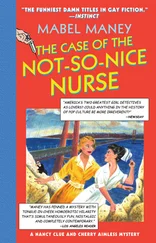“I suppose I can.” Reluctant. Didn’t want to drink with Tert Card but thought no one else would. A quick one. “Let me call Beety and say I’ll be a little late.” But wanted to collect his daughters and go home to the Burkes’ house, a squeaky, comfortable house with many cupboards in unlikely corners. The strangest thing in the place was a lampshade that crackled modestly as the bulb warmed. There was a bathroom with a handmade copper tub wide enough for Quoyle. The first tub he’d ever fit in. Spare rooms for visitors. If any came.
“Then we’ll have a glutch or two, or two,” grinned Tert Card, the devil plucking at the strings of his throat as if it were a guitar. “Follow me.” The vehicles groaned through the cold.
The Heavy Weather was a long room with a filthy linoleum floor and the smell of a backed-up toilet, vomit, stale smoke and liquor. This was where Tert Card drank, the place he scrawled home from, barely able to get up the steps and into his house. Quoyle thought he probably shouted at home. Or worse. The few times he’d seen the wife she looked a bent thing and the children shrank when he said hello to them. For he noticed small children.
Fluorescent halos. A solid row of backs at the bar. Silhouettes of men in caps with earflaps that came down when wanted. Showing each other photographs of boats. The talk was of insurance and unemployment and going away to find work. Quoyle and Tert Card sat at a side table littered with wadded napkins. A smoldering ashtray. Behind them two old slindgers in overcoats and pulled-down Donegal caps, all mufflers and canes and awkward knees. They sat close together on a long bench. Each, a hand on the glass. It might have been a village pub across the water, thought Quoyle.
“What’ll you have?” Tert Card, leaning on the table until it rocked. “What’ll you have, don’t tell me, don’t tell me, it’s going to be screech and Pepsi.” And off he went with his hand worrying his pocket for money.
And back again in the gloom.
They drank. Tert Card’s throat worked thirstily and he swallowed again, lifting the cracking arm and beckoning, thrusting two fingers.
“I seen worse than this.” He meant the weather. “Two years ago how thick the ice was around the shore. The icebreakers was running full clock. And the storms broke your heart. Just a few years ago, first week in December we had screeching bitter winds, fifty-foot waves thrashing around, it was like the bottom of the ocean was going to come up. You should have seen the way Billy sat in his corner shaking alive, scrammed with cold. Then a week or two later the heaviest rain anybody ever see. Floods and destruction. The Lost Man dam broke. I don’t know how many millions of dollars damage it did. December storms are the most treacherous, changeable and cruel. You can go from the warm breeze to the polar blizzard in ten minutes.”
On the wall a fisherman’s calendar showed the last page. The bare tables reflected. Tert Card’s angry yawn. Dark outside, the longest dark of the night. The weather report seeped from a radio behind the bar. A warming trend. Above-normal temperatures forecast.
“That’s the weather we get now. Storm, then cold, then warm. A yo-yo, up and down, coldest, warmest, strongest wind, highest tide. Like some Yank advertising company in charge of it all.”
An old man, in his eighties, guessed Quoyle, and still working, why not, brought them new drinks. His hair cropped to silver stubble, eyes silvery, too, curved as lunettes, the grey shine of a drop under his nose catching the light. A mustache like spruce needles. Mouth agape, an opening into the skull, showing white tongue and gums, staring stupidly at the money Tert Card thrust.
“Be telling you something,” said Tert Card. “Jack and Billy Pretty already knows. I’m leaving, see. I had enough of Killick-Claw. New Year’s Day. They wants me down to St. John’s, put out the newsletter for the oil rig suppliers. I got the phone call yesterday. Applied a year ago. Oh, there’s a waiting list. They only skim the cream. You bet I’m glad to go. If I play me cards right, maybe I’ll get to the States, to Texas and the head office. Though it’s Florida I loves. I’ll think of you, Quoyle, wonder if you’re still up here. See, I’m leaving New Year’s Day. I bet you’ll be the next one to go. You’ll go back to the States. Jack and Billy will have to put out the Gammy Bird themselves. If they can.”
“How will your wife like the city?”
“Wife! She’s not going down there. She’s staying right here, right at home. Stay home where she belongs. All her family’s here. She’ll stay right here. A woman stays at home. She’ll stay here.” Outraged at the idea it could be any different. But when he signaled for new drinks Quoyle got up, said he was off to his children. A parting shot from Tert Card.
“You know Jack’s having Billy take up my job. They’ll probably put you on the women’s stuff, Quoyle, and hire a new feller to do the shipping news and the wrecks. I believe your days is numbered.” And his hand went into his shirt and clawed.
¯
Quoyle was surprised by a fever that swept in with the December storms, as though the demonic energy released by wind and wave passed into the people along the coast. Everywhere he went, saws and rasps, click of knitting pins, great round puddings soaking in brandy, faces painted on clothespin dolls, stuffed cats made from the tops of old stockings.
Bunny talked about the pageant at school. She was doing something with Marty. Quoyle braced for an hour of memorized Yule poems. Did not like Christmas. Thought of the time his brother tore the wrappings off a complete set of Matchbox cars, the tiny intricate vehicles in wonderful colors. He must have gotten some toy, too, but remembered only the flat soft packages that were pajamas or the brown and blue knit shirts his mother bought. “You grow so fast,” she accused. Her eyes went back to the moderate-sized brother sending the Alfa Romeo into the red double-decker bus.
He still wasn’t over it now and resented the hectoring radio voices counting down shopping days, exhorting listeners to plunge into debt. But liked the smell of fir trees. And had to go to the school pageant. Which wasn’t a pageant.
¯
The auditorium was jammed. A sweep of best clothes, old men in camphor-stinking black jackets that gnawed their underarms, women in silk and fine wools in the colors of camel, cinnabar, cayenne, bronze, persimmon, periwinkle, Aztec red. Imported Italian pumps. Hair crimped and curled, lacquered into stiff clouds. Lipstick. Red circles of rouge. The men with shaved jowls. Neckties like wrapping paper, children in sugar pink and cream. The puff of scented bodies, a murmur like bees over a red field.
Quoyle, carrying Sunshine, could not see Wavey. They sat beside Dennis who was alone in the third row. Beety probably, thought Quoyle, helping in the kitchen. Recognized the old bar tender from the Heavy Weather in front of him, a couple of slindgers from the wharves, now with their tan hair wetted and combed, faces swelled with drink and the excitement of being in a crowd. A row of bachelor fishermen waiting to hear of jobs away. The slippery boys. Whole truckloads of clans and remote kin squeezing into folding chairs. Sunshine stood on her chair and made a game of waving to people she didn’t know. He could not spot Wavey and Herry. A smell of face powder. She’d said they would be there. He kept looking.
The principal, dressed in her brown suit, came on the stage, a spotlight wavered across her feet and the junior choir began. Shrill, pure voices flooded over the audience.
It was not what he thought. Yes, children lisped comic or religious poems to thunderous applause. But it was not just schoolchildren. People from the town and the outlying coves came onstage as well. Benny Fudge, the black-haired rager who led the attack on poor Nutbeem’s boat-for he was “poor Nutbeem” now-sang “The Moon Shines Bright” in a fruity tenor and finished with two measures of finger snapping and clogging.
Читать дальше











